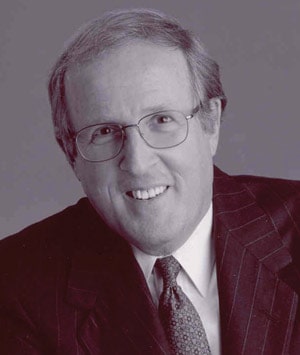REWARDING RISK
By Udayan Gupta
Edward Mathias is a member of the board of directors and a managing director and partner of the Carlyle Group, the global alternative asset management firm. He was instrumental in founding the group and assisted in raising its initial capital. Prior to joining Carlyle in 1994, Mathias was a longtime member of the management committee and board of directors of T. Rowe Price, a major investment management organization.

Global Finance: How would you characterize the evolution and growth of the firm over the past 25 years?
Edward Mathias: Carlyle was fortunate to be an early player in what turned out to be a growth industry. In retrospect, the company had several stages of growth over a 25-year period—at the outset, we lived hand-to-mouth, doing various types of advisory work. The cycle then progressed from LBOs to private equity to global alternative asset management.
Very early on, we made substantial investments at inordinately attractive prices in the defense industry at a time when the industry was out of favor—this generated attractive returns that enabled us to raise substantial amounts of capital, which allowed us to broaden our investor base and product offerings. In addition, we have been and continue to be blessed to have an extraordinary investor in Bill Conway and an industry visionary and marketing maven in David Rubinstein. As a result, we were able to stay at the forefront of an evolving industry. But it’s important to recognize that none of this would have been possible without superior investment performance. The old adage “money follows performance” is as true today as ever.
GF: How has the private equity model changed?
Mathias: The private equity model today is very different than what it was in the ’80s, ’90s and even mid-2000s. Generating returns through financial engineering is no longer enough. Firms have to offer legitimate value creation—growing the top line rather than just cutting expenses.
Carlyle is not a turnaround specialist; we invest in good companies with strong management—the key is to buy such companies at a reasonable price and to avoid excess leverage.
GF: How do you characterize the global focus of private equity today?
Mathias: Private equity is now truly a global business. Today we have developed markets; growth markets (what some may call “emerging,” which is something of a misnomer); and the frontier markets. Each of these markets is quite different in terms of regulation, political and economic stability, access to credit, capital opportunities and requirement, etc.
We often hear people refer to the impressive GDP growth in the growth and frontier markets relative to the US and developed markets. But it is important to keep in mind the challenges and complexities that come with investing in these markets. These markets tend to be higher-growth and more volatile, with the expectation of significantly higher returns. With increased risk comes potentially high returns.
GF: When did you decide to expand into “growth and frontier” markets?
Mathias: In financial services you very seldom make dramatic moves such as this. In 1998 we were very cognizant of what was happening in Asia and initiated a fund. It wasn’t huge but as we gained knowledge, hired local teams and built relationships, over time the assets under management expanded and products proliferated to where we have now a foothold in most parts of the world.
Our newest fund endeavor is focused on sub-Saharan Africa. Each of the major firms has a different philosophy about operating in the growth and frontier markets. Ours is to have local teams on the ground, with specialized regional funds—versus a large global fund. This gives investors direct exposure to specific markets.
GF: Are there still opportunities in developed markets? What are the challenges ahead?
Mathias : Private equity has become something of a mature industry. It is now a well-recognized asset class and is extremely competitive. The challenges to some extent remain the same for us: buy good companies at a reasonable price and add value to the enterprise. The new challenges relate to managing more complex organizations, dealing with increased regulation, and an environment in which fundraising has become much more difficult.



